RCOG World Congress 2025 London 23-25th, June 2025
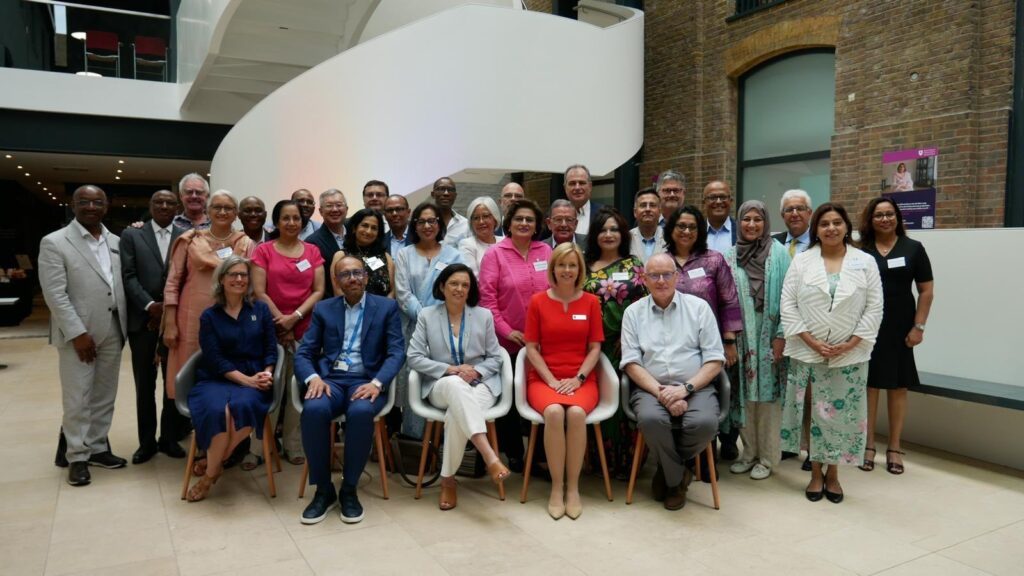
The RCOG Congress 2025 was an exceptional event that brought together 3,000+ delegates from over 100 countries and around 300 of them were from Pakistan. The event began with an important meeting of the IRC and LG chairs on Sunday, June 22nd. Emphasizing the importance of collaboration and shared insights into work done by other IRC Leaders across the globe. Prof Nazli Hameed represented Pakistan. On Monday 23-6-25, Prof. Nazli Hameed chaired a session on on Pelvic floor birth trauma. Additionally, she chaired the IRC meeting showcasing the remarkable achievements and plan for next 6-12 months of the IRC for the year 2024-2025. There was emphasis on promising future collaborations including “Gynaecology Health matters” Tuesday 24th June, 25 began with an invigorating early riser session led by the Pakistan IRC featuring following talks Navigating ethical waters: RCOG Vs South Asian realities on termination of pregnancy for fetal indications: Nazli Hameed. Comparison of Training experience in NHS Vs Pakistan: Rehana Rahim Bridging the gap: Law, Medical indemnity & Clinical Practice: Rabia Mushtaq. It attracted a substantial number of participants, all united in their support for Pakistan. We are pleased with the strong academic presence of Pakistan by showcasing many oral & poster presentations by clinicians across the country. There were two oral presentations and 4 poster presentations from Shalamar Medical & Dental College. Prof. Nazli Hameed represented Pakistan in the “RCOG’s Got Talent.”. The congress concluded on a high note, with Pakistan again winning the prestigious Best Oral presentation Award, and 2nd prize in poster presentation.
Surgical Safety Checklist
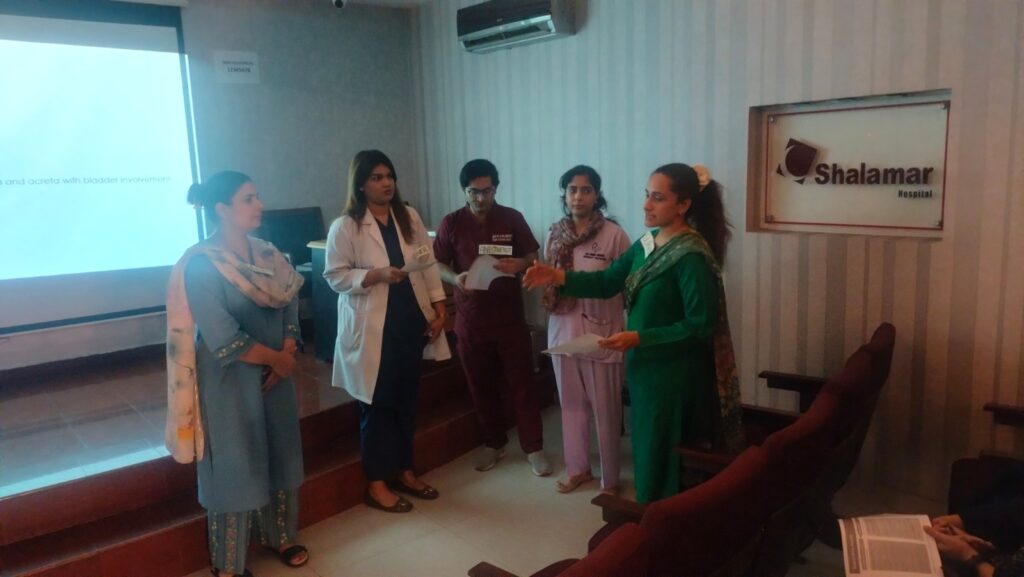
A surgical safety checklist is essential because it helps prevent errors, improves communication among the surgical team, and ensures patient safety. It acts as a structured guide to confirm critical steps before, during, and after surgery, reducing complications and improving overall outcomes. Here’s why it matters:Prevents mistakes: It ensures the right procedure is performed on the right patient, reducing the risk of serious errors.Enhances teamwork: Encourages better communication among surgeons, anesthetists, and nurses.Reduces complications: Helps track important safety measures, like infection prevention and anesthesia checks.Standardizes best practices: Ensures consistency in safety protocols across different healthcare settings. The World Health Organization (WHO) introduced a global surgical safety checklist that has significantly reduced post-surgical complications. It’s a simple tool, but its impact can be life-saving.
Surgical Skills & Drills
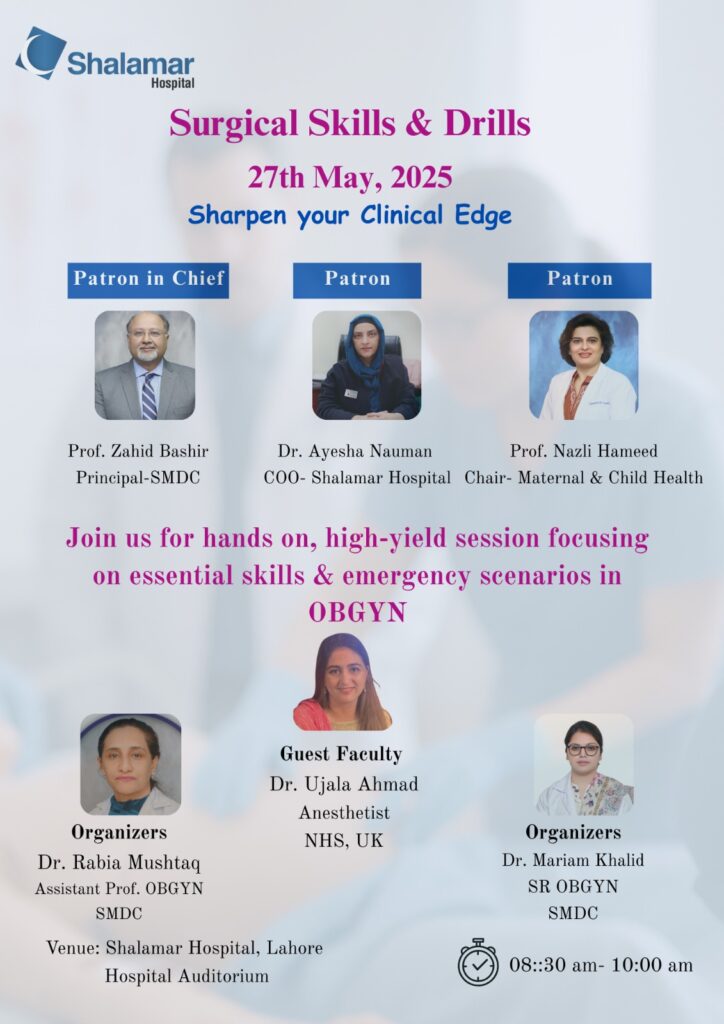
Skills and drills in obstetrics are crucial for preparing healthcare teams to handle emergencies effectively and improve maternal and neonatal outcomes. These training sessions focus on refining critical skills and ensuring that medical professionals respond swiftly and appropriately in high-pressure situations. Here’s why they’re essential:– *Enhancing emergency response* – Obstetric emergencies, such as postpartum hemorrhage, eclampsia, and shoulder dystocia, require immediate intervention. Drills ensure quick, coordinated action.– *Improving teamwork and communication* – Simulated scenarios strengthen collaboration among doctors, midwives, and nurses, reducing errors.– *Boosting confidence and competence* – Repetition builds muscle memory, helping professionals apply skills efficiently in real cases.– *Reducing maternal and neonatal complications* – By practicing life-saving interventions, teams can lower the risk of severe outcomes.– *Standardizing best practices* – Ensures consistency in handling emergencies across different healthcare settings. Regular training sessions empower medical teams, ensuring that every second counts when managing obstetric complications.
Hypertension Awareness Medical Camp at Shalamar Hospital
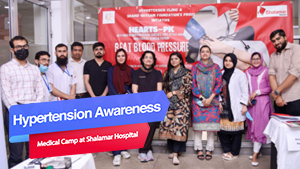
Prof. Azra Mahmud and her dedicated team organized an informative and impactful medical camp focused on hypertension awareness, screening, and prevention at Shalamar Hospital. Through free blood pressure checks, lifestyle counseling, and patient education, the camp aimed to raise awareness about managing high blood pressure — a silent but serious health risk. We thank Prof. Azra Mahmud and her team for their efforts in promoting a healthier community!
Shalamar Nursing Day – Poster Presentation
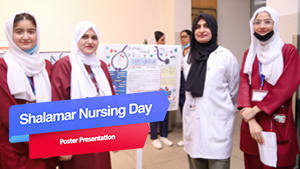
Our dedicated nursing staff showcased their clinical expertise, research insights, and patient-centered innovations through a powerful poster presentation at Shalamar Hospital. From improving care practices to highlighting real-time challenges in the healthcare system, these posters reflect the passion, intellect, and leadership of our nurses. A big round of applause to all the participants for driving excellence in nursing care!
Happy World Nursing Day!
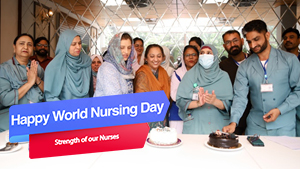
We honor the compassion, dedication, and strength of our nurses — the true backbone of healthcare. At Shalamar Hospital, our nursing staff goes above and beyond every single day to provide comfort, healing, and hope to patients and their families. Thank you for being the heart of our hospital — your care changes lives.
Optimizing Athletic Performance Through Physiotherapy: A Winning Partnership

Whether you’re a professional athlete or a weekend warrior, staying injury-free and performing at your best is the ultimate goal. That’s where physiotherapy steps in—not just as a recovery tool, but as a key player in prevention and performance enhancement. The Role of Physiotherapy in Sports Physiotherapy focuses on the assessment, diagnosis, and treatment of physical dysfunction. In the sports world, its benefits go far beyond treating injuries. It helps athletes: Improve flexibility and range of motion Enhance muscular strength and endurance Correct posture and biomechanics Reduce the risk of injury through preventative programs Common Sports Injuries and How Physiotherapy Helps Some of the most frequent injuries in sports include: Sprains and strains Tendonitis ACL tears Shin splints Rotator cuff injuries Physiotherapists use a range of techniques including manual therapy, therapeutic exercises, dry needling, and electrotherapy to aid recovery. They also tailor rehab programs to safely return athletes to their sport. Prevention is Better Than Cure One of the most underrated benefits of physiotherapy is injury prevention. Regular assessments can catch muscle imbalances, poor technique, or overuse patterns early. Programs like prehab (pre-injury rehabilitation) are designed to strengthen vulnerable areas and build resilience. Tips for Athletes to Stay Injury-Free 1. Warm-Up and Cool Down – Never skip these; they prepare your body and aid recovery. 2. Strength Training – Build overall muscle strength, not just sport-specific areas. 3. Cross-Training – Avoid overuse by mixing in different activities. 4. Listen to Your Body – Pain is a warning sign; don’t push through it. 5. See a Physio Regularly – Think of it as athletic maintenance. Conclusion Physiotherapy is more than just injury treatment—it’s a proactive strategy for peak performance and longevity in sport. Whether you’re recovering from a setback or looking to prevent one, incorporating physiotherapy into your training can be a game-changer.
2. Shalamar Hospital honored to host renowned International Cricket Umpire Aleem Dar and Mr. Muneeb Rahmat, Regional Head of Punjab Thalassemia Prevention Department (PTPD)
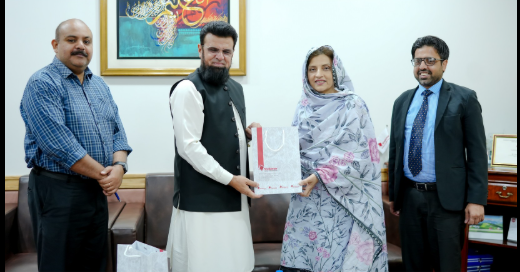
A powerful step towards saving lives! Shalamar Hospital was honored to host renowned International Cricket Umpire Aleem Dar and Mr. Muneeb Rahmat, Regional Head of Punjab Thalassemia Prevention Department (PTPD), Government of Punjab. They met with Dr. Ayesha Nauman, Chief Operating Officer, to discuss collaborative efforts for thalassemia awareness and enhanced patient care.
Shalamar Hospital conducted an impactful awareness session at the University of Management and Technology (UMT)!
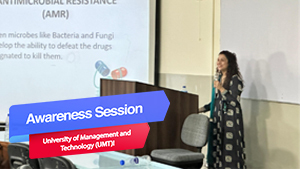
Dr. Maria Shireen highlighted the growing concern of Antimicrobial Resistance, while Nutritionist Ms. Javeria educated participants on PCOS management. We also organized a medical camp offering free consultations and vital health checkups, strengthening our commitment to community wellness.
Shalamar Hospital Observes World TB Day with an Awareness Walk
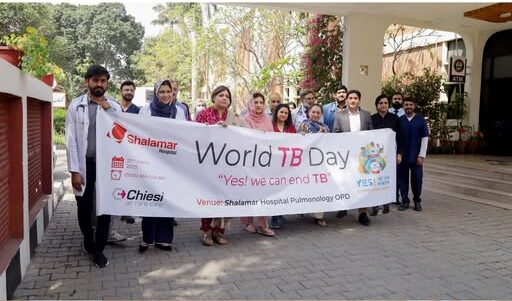
In a united effort to promote a healthier tomorrow, Shalamar Hospital observed World TB Day with a meaningful and impactful awareness walk, led by the Department of Pulmonology. The event was held to raise awareness about tuberculosis (TB), a preventable and curable disease that continues to affect millions of lives around the world. Guided by the global theme “Yes! We Can End TB”, the awareness walk served as a call to action, urging communities, healthcare professionals, policymakers, and organizations to commit to the global fight against TB. The theme emphasizes the power of collective effort — highlighting that through commitment, investment, and proper healthcare delivery, we can work together to create a TB-free world.
